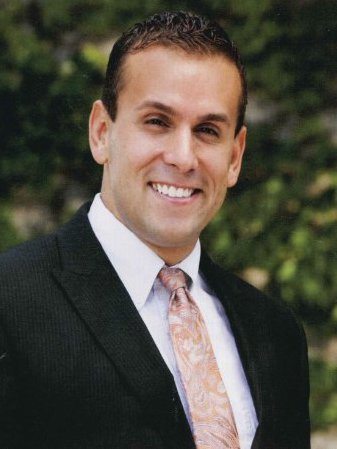Ultra-Marathoner Jeff Neumeister Brings His Training to the Accounting Program
 As chair of the Accounting program at Woodbury’s School of Business, Jeff Neumeister, puts a premium on preparing students for the challenges that aren’t covered in their textbooks or case studies.
As chair of the Accounting program at Woodbury’s School of Business, Jeff Neumeister, puts a premium on preparing students for the challenges that aren’t covered in their textbooks or case studies.
There is no one-size-fits-all service to a client, he tells his students, and they had better be ready for anything. Today’s successful accountant/financial advisor must always be learning, inquiring, and devising innovative solutions in order to distinguish themselves and their plans for their clients.
Making sure you see a problem in its full context is key. “I consistently engage in research,” Neumeister says. “Every client is different from the other and research provides an opportunity to investigate an industry, profile a company, and distill out-of-the-box strategies for addressing unique problems.”
To Neumeister, the traditional accounting course of study is simply a baseline. The students he sees become successful are those who combine a focused work ethic with a refusal to rely on standard practices. “There are a lot of CPAs who can easily replicate one another’s work, but there are far fewer professionals who can tackle more unique and complex problems,” he says.
Neumeister draws on advanced degrees from Woodbury, Arizona State University and 17 years in the field. His work — for accounting firms large and small, before he recently formed his own, Neumeister and Associates — has encompassed a broad range of accounting specialties, with an emphasis on forensic work and litigation support. His clients include individuals, companies, partnerships and joint ventures, among others. He’s dealt with start-ups growing so fast they haven’t kept their books current or filed appropriate tax returns, as well as established businesses dealing with their own complicated issues.
He collected essays from a host of real estate experts for his upcoming book “Money Matters: World’s Leading Entrepreneurs Reveal their Top Tips to Success,” due in August 2018, which is designed to address questions in the real estate industry for those ranging from the first-time homebuyer to a large scale commercial developer.
For accountants, successful client relationships tend to endure for years. Outside of the professional world, Neumeister similarly plays the long game. An ultramarathoner, he recently laced up for a 150-mile Saharan desert run. He sees parallels between the demands of his extra-curricular passion and what he considers the principles of an effective accountant: Accept daunting challenges. Commit to do the advance work that puts you at a competitive advantage. Believe that you can overcome any obstacle — and make sure these obstacles won’t arise again.
“A strong ‘worth ethic’ and sense of drive is more important than any other singular trait,” Neumeister says. “I challenge my students to get outside their respective comfort zones to undertake the task head-on.”